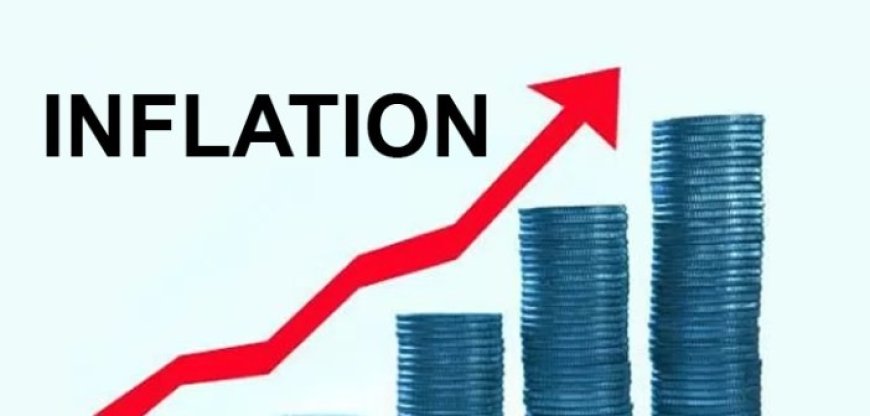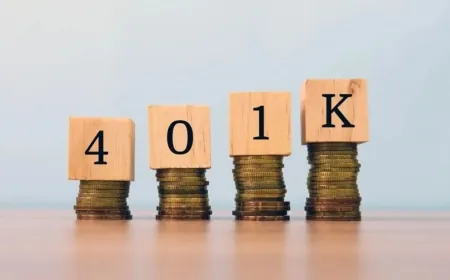How Inflation Affects Your Finances and Easy Strategies to Counter It
Learn the impact of inflation on personal finances and effective strategies to mitigate it. Protect your purchasing power and secure your financial future with these easy techniques.

Inflation, the gradual increase in prices over time, can have a significant impact on your personal finances. It erodes the purchasing power of your money and makes it harder to maintain your lifestyle and achieve your financial goals. However, with some simple strategies, you can effectively counter the effects of inflation and secure your financial well-being. In this article, we'll explore how inflation affects your finances and provide easy-to-implement strategies to mitigate its impact.
Understanding the Impact of Inflation on Your Finances:
When inflation occurs, the cost of goods and services rises, reducing the value of your money. Here are a few ways inflation can affect your finances:
Reduced Purchasing Power:
As prices go up, the same amount of money buys you less. It becomes harder to cover your daily expenses and maintain the standard of living you're accustomed to. Stretching your budget becomes a challenge.
Erosion of Savings and Investments:
Inflation gradually diminishes the value of your savings over time. If the interest you earn on your savings doesn't keep up with inflation, your money loses its buying power. Similarly, if your investments don't outpace inflation, you may struggle to grow your wealth and achieve long-term financial security.
Impact on Debt:
The impact of inflation on your debt depends on the type of debt you have. Fixed-rate loans can actually benefit you during inflation, as you're repaying the debt with money that's worth less. However, variable-rate loans or credit card debt can become more burdensome as interest rates rise in response to inflation, making it harder to pay off your debt.
Easy Strategies to Counter the Impact of Inflation:
Invest in Assets that Beat Inflation:
Consider allocating a portion of your investments in assets that have historically performed well during inflationary periods. Stocks, real estate, and even commodities like gold tend to outpace inflation over time. By diversifying your investments in these assets, you can protect the value of your money and potentially grow your wealth.
Diversify Your Investments:
Don't put all your eggs in one basket. Diversify your investment portfolio by spreading your money across different types of assets, industries, and geographic regions. This approach helps reduce the risk of being heavily affected by inflation in one specific area. A diversified portfolio can provide stability and protect against inflationary pressures.
Consider Inflation-Indexed Investments:
Explore investment options specifically designed to counter the effects of inflation. Treasury Inflation-Protected Securities (TIPS) and inflation-indexed bonds adjust their returns based on inflation rates. These investments can help preserve the purchasing power of your money as they provide a level of protection against rising prices.
Review and Adjust Your Budget:
Regularly review your budget to identify areas where you can reduce expenses and save more money. Look for opportunities to negotiate bills, switch to more cost-effective alternatives, and cut back on discretionary spending. Increasing your income through side gigs or seeking career advancement opportunities can also help offset the effects of inflation.
Build an Emergency Fund:
Having an emergency fund is essential for weathering inflationary periods. Aim to save three to six months' worth of living expenses in a readily accessible account. An emergency fund acts as a financial safety net, providing security during unexpected expenses or income fluctuations.
Seek Professional Advice:
If you feel overwhelmed or uncertain about navigating inflation, consider seeking guidance from a financial advisor. They can provide personalized advice based on your specific financial situation and goals. They can help you understand hedging strategies or other techniques to protect your finances from inflation.
Conclusion:
Inflation can significantly impact your personal finances, eroding purchasing power, diminishing savings, and increasing debt burdens. However, by implementing easy strategies like investing in inflation-beating assets, diversifying your investments, considering inflation-indexed options, reviewing your budget, building an emergency fund, and seeking professional advice, you can effectively counter the effects of inflation and secure your financial well-being. Take proactive steps to navigate inflationary periods and work towards achieving your long-term financial goals. With a well-planned approach, you can mitigate the impact of inflation and maintain financial stability.
Also Read: New EV Tax Credit 2023: List of Electric Vehicle Models Eligible for Up to $7,500 in New Tax Credits
































































